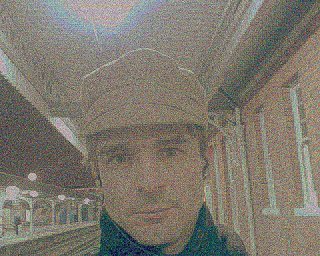What is power? Why should we try to pin this idea down, why is it so important? Perhaps we cannot nail it down as such. But why we should we imagine it?
I am confused by the concept of power
Power doesn’t have substance, it is not a physical entity
Power is (a) word
This makes it very difficult to generalise about it. It might have many different meanings.
As a noun it might be the ability to do something or act in a particular way; or it might be a capacity or ability to direct or influence others or the course of events.
It might be attached to a person, an organisation, a political or social entity, a state, a supernatural being or force, (a) god. It might refer to physical strength or mechanical or electrical energy.
How can it be attached to all of these things and mean the same thing? Is it polysemic or simply contested?
It is used to describe, in nature, a force, a potential to affect and disturb
It is a capacity contained in nature
It has, through science and engineering been harnessed by human beings
It is also used to describe very human ideas: the power of speech, the power of thought. These are powers, but do they represent power? Perhaps they do, but not in the sense that I am trying to convey. These capacities as the ability to do something are best described as potentia (the power of things in nature). I am more interested in potestas, that is being in the power of another, which Lukes (2005) sees as sub-concept of the former. Potestas refers to the ability to direct or influence others.
The immediate implication of potestas is that power is possessed by one person over another. I am not, however, certain that power is possessed in this way.
Power is at work in an interplay, in an action and reaction: in a conversation, in the back and forth between two people words, gestures, a glance, a flick of the eyebrows, tone of voice.
Power is at work in the spaces I inhabit and in the networks of which I am a part. Through networks, spaces, relations I am shaped and my actions, reactions and interactions are contextualised and shaped. They are seen, compared, measured. They are honed and defined.
In this view, I cannot take power and keep it to myself. It works through my relations with people and things, through the accumulation of knowledge and in the way I orient myself to people and things. Power is not an encompassing force as such and it is not located within boundaries. It is ‘produced from one relation to the next’ as Foucault might put it.
It comes from practice, however, that may occur in a specific place at a specific time. It is likely to be an action upon an action, a response to a chance event that grows into an imperative, a congealing of that action into a practice. Practice becomes procedure and process which may spread beyond its boundaries as one network of relations and forces comes into contact with another.
This is all highly abstract, as much Foucauldian influenced theory is wont to be. How can I begin to make this useful?
What Foucault seeks to do is to track the processes by which compliance is secured voluntarily. How power works in ‘hidden’ and subtle ways such that one becomes subject to it without having felt physically coerced.
These ideas need to be removed from abstraction in some way and applied. Weber can help us to do this because he couches his concerns about the growing anonymity of power, about its tendency in modern, rational society to become restrictive and all-pervasive, in the specific analysis of forms of organisation. It is clear to me that Foucault must have read and been influenced by Weber whilst developing some of his ideas about modern power. When one reads Weber on discipline (see ‘The Meaning if Discipline’ in the Gerth & Wright Mills edited book From Max Weber), it leaps out of the page. There is I believe, despite a number of almost schismatic differences between the two theorists, a creative tension that can point us towards some exciting new insights.
The question thus becomes, how to bring them together?
Tuesday, July 04, 2006
Subscribe to:
Post Comments (Atom)

No comments:
Post a Comment